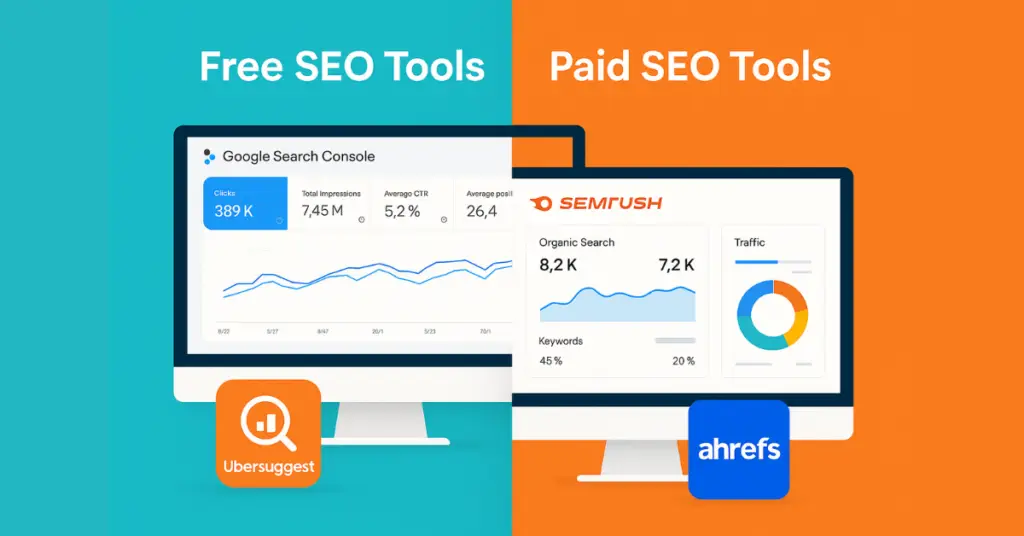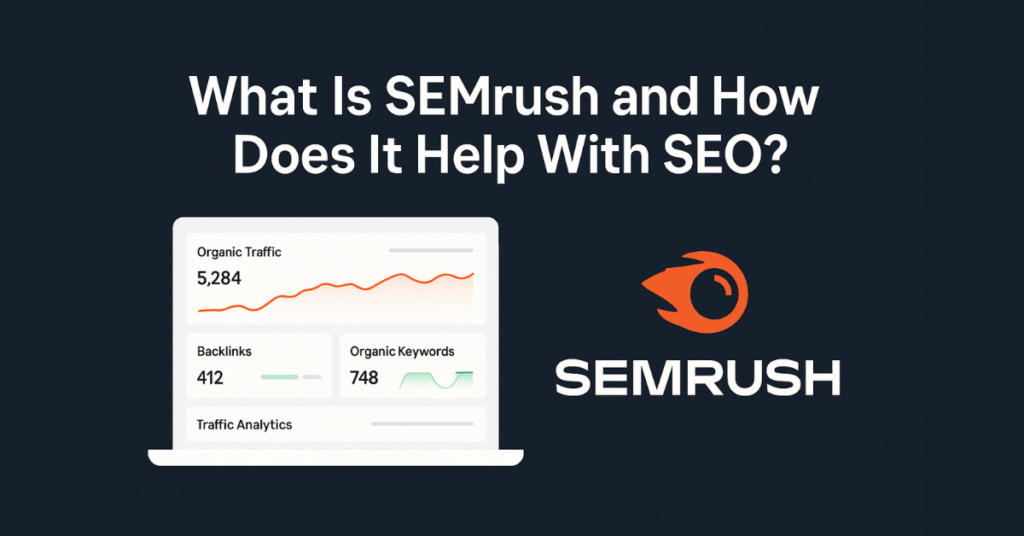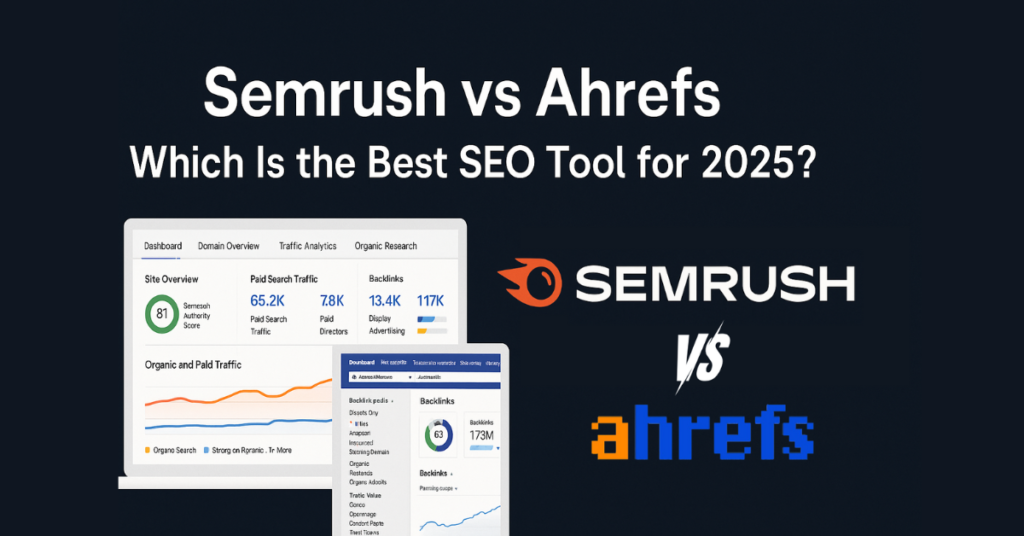7 Key Differences Between Free and Paid SEO Tools in 2025 (Beginner-Friendly Guide)
Let’s be honest. If you’re just starting out with SEO, you’ve probably asked yourself this at least once:
“Should I just stick with free tools… or is it really worth paying for something like Semrush or Ahrefs?”
I’ve been there too.
You open up a free tool, poke around a few dashboards, maybe even get some keyword ideas — and it feels… okay. Then you see someone on YouTube saying you’re “missing out” if you’re not using a $129/month tool.
So who do you trust?
That’s what we’re going to figure out together in this post.
Because the truth is: free tools aren’t useless — and paid tools aren’t magic.
They both have their place. And by the end of this post, you’ll know exactly which one fits your current stage, your goals, and your budget.
Let’s dive in.
Let’s Be Honest — What Are You Really Trying to Do?
Before we talk tools, let’s talk goals.
If you’re a:
New blogger trying to get your first few visitors
Affiliate marketer just starting to build your SEO game
Side hustler on a tight budget
Or someone wondering if paid tools are really worth it
…this post is for you.
Because you don’t need “enterprise-level link-building automation” when you’re still figuring out what keywords are. You just need clarity, simplicity, and confidence.
Free SEO Tools — Your First (and Best) Friends When Starting Out
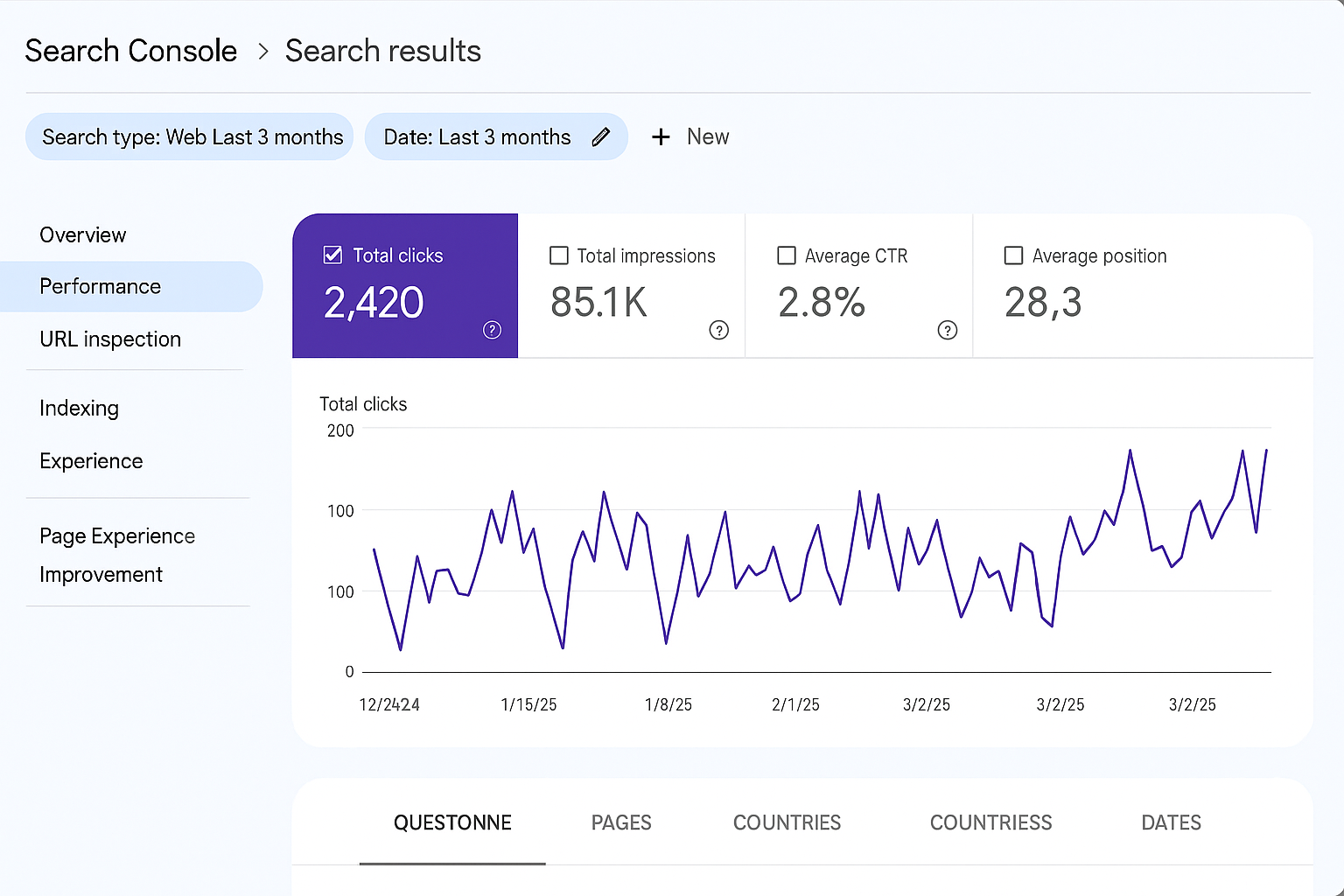
The Good Stuff (Yes, You Can Do a LOT for Free)
Let’s shout this from the rooftops: you can go a long way with free tools.
Here are a few that every beginner should try:
| Tool | What It’s Great For |
|---|---|
| Google Search Console | Knowing how people find your site, seeing what’s ranking, fixing indexing issues |
| Google Analytics | Understanding your traffic and what people do on your site |
| Ubersuggest (Free Plan) | Basic keyword research and SEO audit tools |
| Google Keyword Planner | Finding keyword ideas and search volume |
| Pagespeed Insights | Checking how fast your site loads and how to fix it |
These tools cost you nothing and can help you grow — especially if your site is new, your budget is tight, and you’re still building content.
But Let’s Be Real — Free Tools Have Limits
You might hit search limits fast (Ubersuggest, SEMRush free trial)
You’ll get less keyword data and fewer competitor insights
Most free tools don’t track your rankings over time
You’re mostly on your own with support
That’s fine if you’re just learning or testing things out. But at some point, you’ll feel the ceiling.
Paid SEO Tools — Are They Worth the Investment?
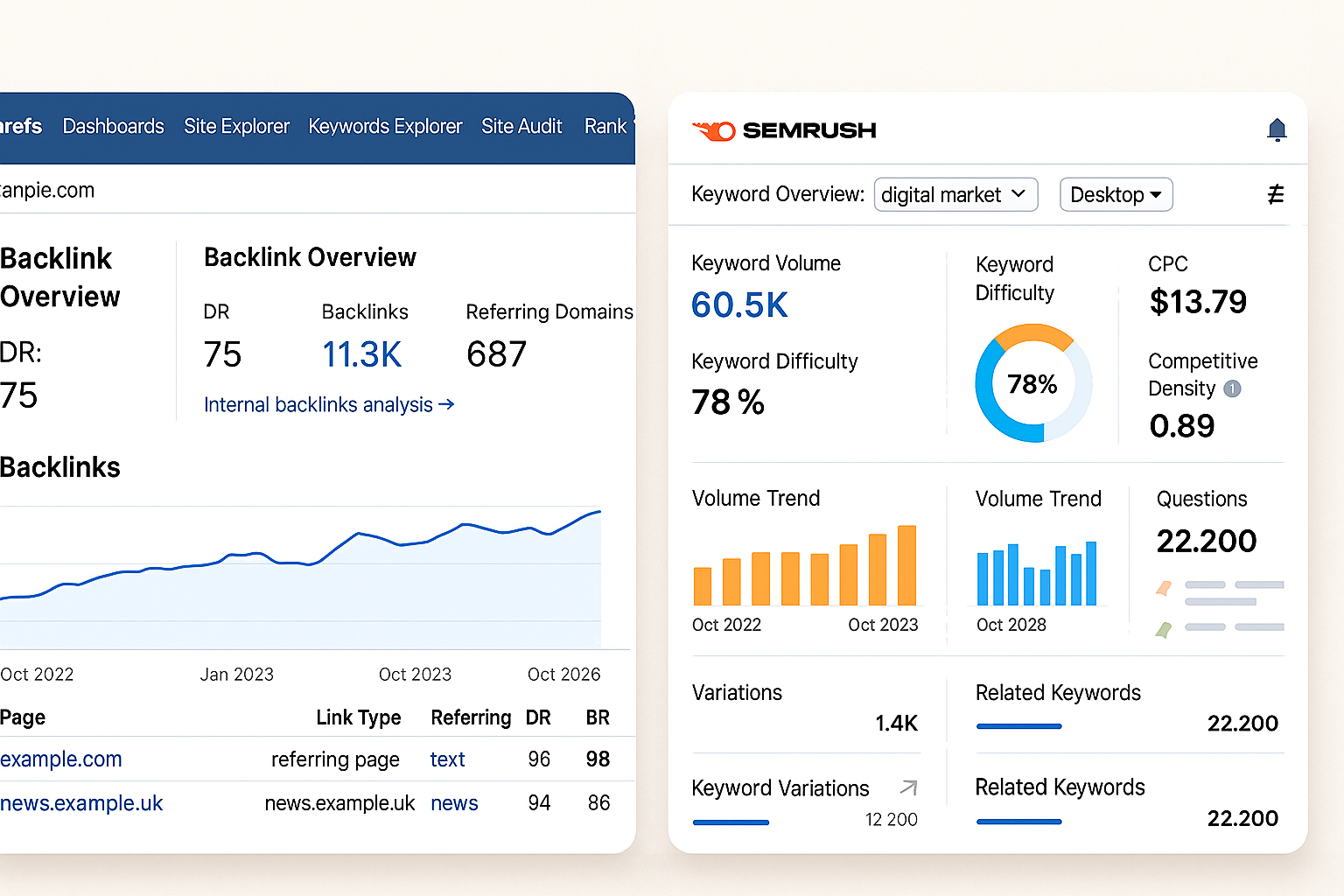
What You Unlock with Paid Tools
Paid platforms like SEMRush, Ahrefs, Moz, and SE Ranking are like going from a bicycle to a turbocharged car.
Here’s what they typically give you:
Deep competitor analysis (see what keywords your rivals rank for)
Detailed backlink tracking and new link alerts
Accurate rank tracking over time
Content gap analysis — see what your site is missing
Technical audits with fix suggestions
Project dashboards to manage multiple websites
| Paid Tool | Best For | Why People Love It |
|---|---|---|
| SEMRush | All-in-one SEO, content marketing, PPC | Massive feature set, project tools, market trends |
| Ahrefs | Backlinks, content research | Clean UI, accurate data, great for content strategy |
| Moz Pro | Simplicity, keyword tracking | Easy to use, great learning materials |
| SE Ranking | Budget-friendly paid SEO | Covers most needs at lower cost |
But It’s Not Always a “Yes”
You might not need a paid tool yet. Ask yourself:
Am I generating regular traffic or revenue?
Do I feel limited by free tools?
Am I working on more than one website?
Do I need team access, reporting, or automation?
If you’re saying “not yet” — don’t rush it.
But if you said “yes” to even two of those, a paid SEO tool could be your next best investment.
Still on the fence about which premium tool is best? Don’t miss my full breakdown: Semrush vs Ahrefs: Friendly SEO Showdown for 2025 — it’s an easy, side-by-side comparison to help you decide.
Free vs Paid SEO Tools — Side-by-Side Comparison
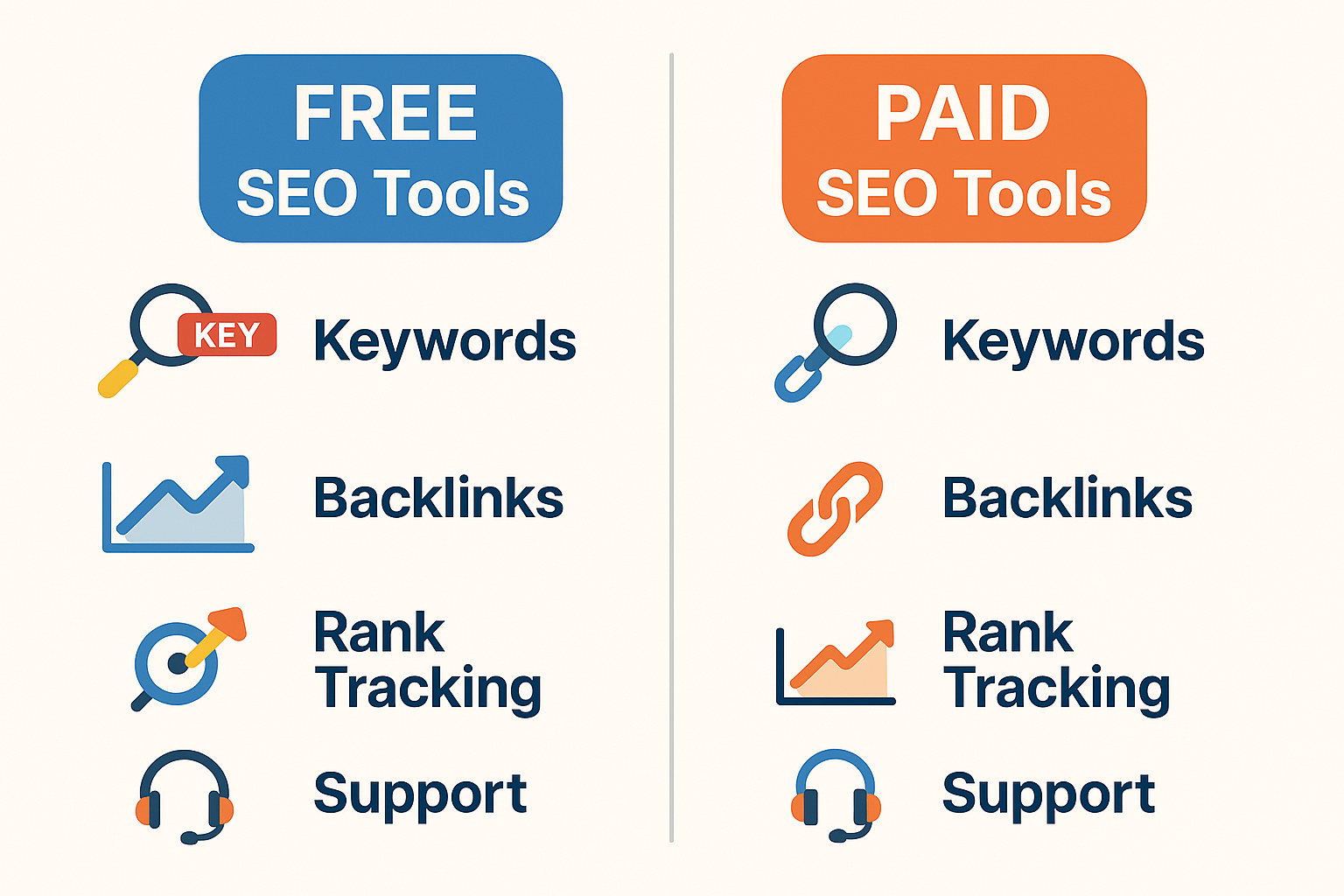
| Feature | Free SEO Tools | Paid SEO Tools |
|---|---|---|
| Keyword Research | Basic suggestions | Deep insights, search trends |
| Site Audits | Light checks | Full crawls, technical fixes |
| Backlink Analysis | Limited data | Full backlink profiles |
| Rank Tracking | Rare or none | Daily or weekly tracking |
| Competitor Insights | Basic (if any) | In-depth comparisons |
| Support & Help | Forums & docs | Live chat, webinars, tutorials |
So… Which Should You Use Right Now?
If You’re a Beginner or Budget-Conscious:
Start with these:
Google Search Console
Google Keyword Planner
Ubersuggest (free tier)
MozBar (browser extension)
Focus on learning how to optimize content, track performance, and fix basic SEO errors. You don’t need fancy dashboards yet.
If You’re Scaling or Serious About SEO:
Consider investing in:
SEMRush or Ahrefs (full-suite pros)
SE Ranking (budget-friendly paid option)
Surfer SEO (if you want help with on-page optimization)
These tools save you time, uncover deeper insights, and give you serious SEO firepower.
Pro Tip — Mix and Match for Maximum Value
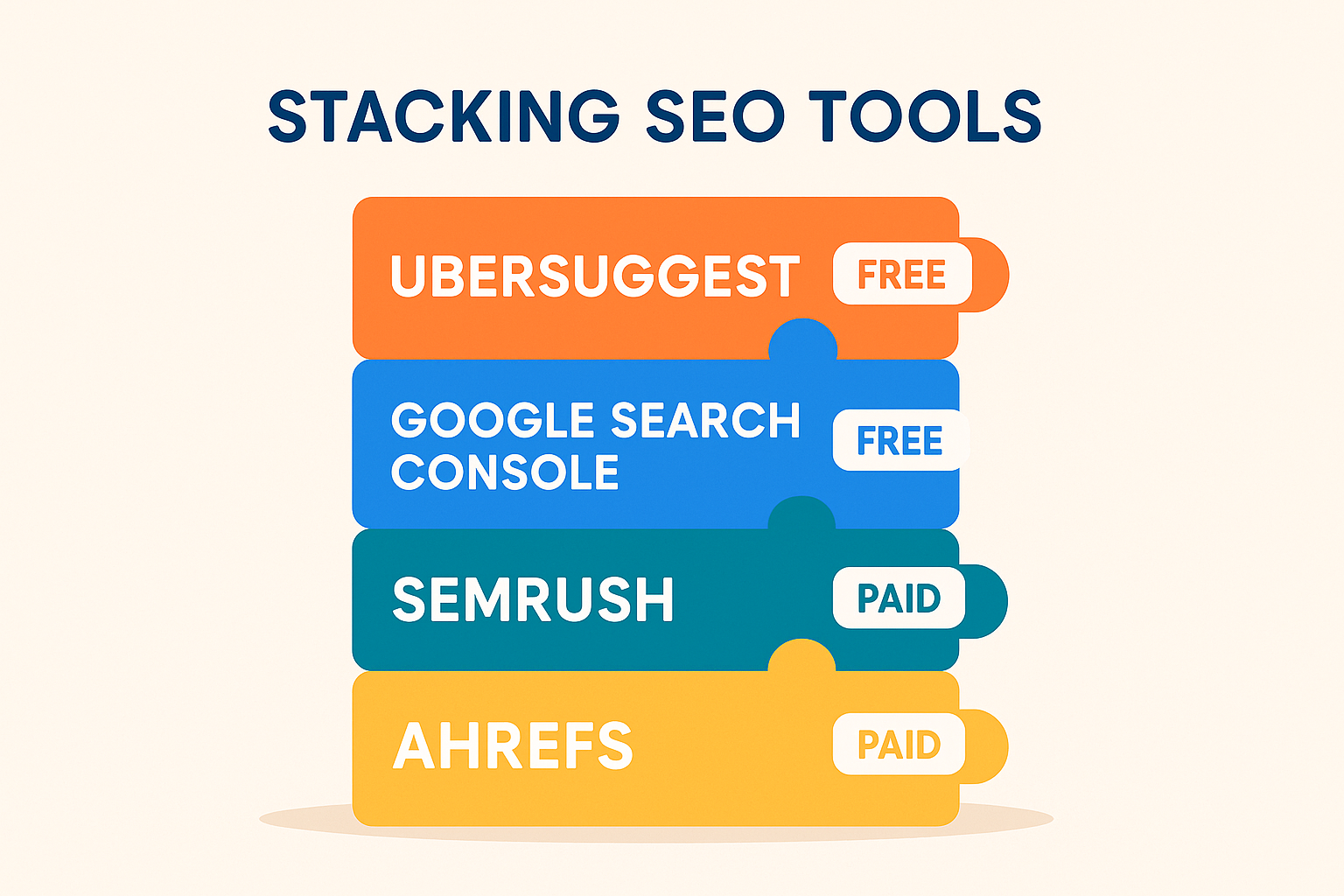
You don’t have to go all in on paid right away.
Here’s a combo I recommend:
Google Search Console + Google Analytics (always use these)
Ubersuggest or Moz free (starter keyword data)
SEMrush or Ahrefs for focused 1–2 month campaigns
Then pause or downgrade until you need it again
That way, you get premium insights when it matters most — without locking into expensive subscriptions too early.
Final Thoughts — Choose Tools That Match Your Journey
SEO is not one-size-fits-all. The best tool isn’t always the most expensive — it’s the one that helps you grow.
Start lean. Learn fast. Scale smart.
Whether you’re just trying to rank your first blog post, or you’re running client sites and diving into backlink audits, there’s a stack of tools that fits you.
Use the free ones to learn, and when it’s time — don’t be afraid to level up with a paid tool that saves you time, gives you clarity, and helps you grow with confidence.
FAQs — Quick Answers to Big Questions
Q: What’s the best free SEO tool to start with?
A: Google Search Console. It’s powerful, free, and directly connected to Google Search. A must-have.
Q: When should I upgrade to a paid tool?
A: When your site starts growing, you feel limited by free tools, or you need competitor insights and rank tracking.
Q: Are paid tools always better?
A: Not always. They’re more powerful, but they only make sense if you use the extra features regularly.
Q: Can I succeed with just free tools?
A: Absolutely — especially at the start. Many successful SEO pros began with free tools and upgraded later.

